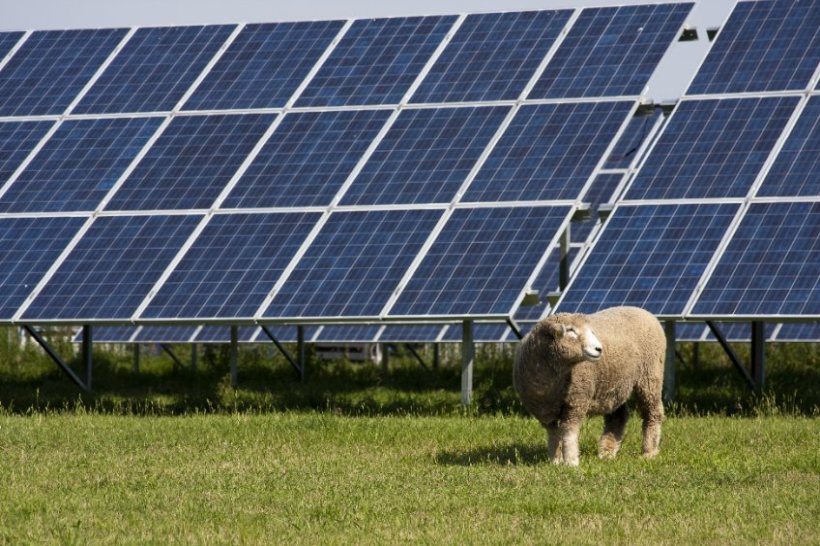
Local councils will be urged by ministers not to approve planning permission for solar farms on high-quality farmland as part of a new drive to protect food security.
A written ministerial statement will be laid before parliament today (15 May) making clear that such projects should only be given the go-ahead when “necessary”.
A new planning framework unveiled six months ago was meant to make the position clear, but ministers fear projects are still being approved that fall short of their demands.
Councils will also be told to take into account whether other solar farms are nearby when considering an application for a new one, thereby focusing on the “cumulative” impact.
It comes after a vocal campaign on the issue by the Countryside Alliance, which has raised concerns over the threat to UK food security as a result of leaving less land available for food production.
Subsidies and developer incentives have created a situation where the conversion of agricultural farms to solar can be lucrative to landowners.
Rural campaigners warn that there are, however, wider economic implications beyond the ability of single farms to generate revenue.
In some cases, tenant farmers have been threatened with eviction so that land can be used for solar and are facing added pressure on land values.
The Countryside Alliance said these trends risk making it harder for new entrants to join the sector and begin farming, in turn threatening the long-run agricultural skill base.
Additionally, the economic viability of solar farms relies on cost-effective connection to a nearby electric substation, the group said.
Speaking to The Telegraph, Claire Coutinho, the government's Energy Security Secretary, said the country must reach its solar targets 'in a sensible way'.
“I want to see more solar on rooftops and where that’s not possible for agricultural land to be protected," she said.
"Rising threats around the world mean we must have a renewed emphasis on our security. That means protecting our food security whilst also delivering the cheap energy we need."
David Bean, government relations manager for the Countryside Alliance, said the group had long campaigned for energy infrastructure to be sited sensitively, and for food production to remain the primary use of farmland.
"We welcome this statement as an important supplement to the recent revised planning framework," he explained.
“Like the government, we think there is much greater scope for encouraging solar panels to be placed on existing and new industrial sites, to help ensure rural areas aren’t asked to bear a disproportionate burden in the move to a net-zero energy system."
